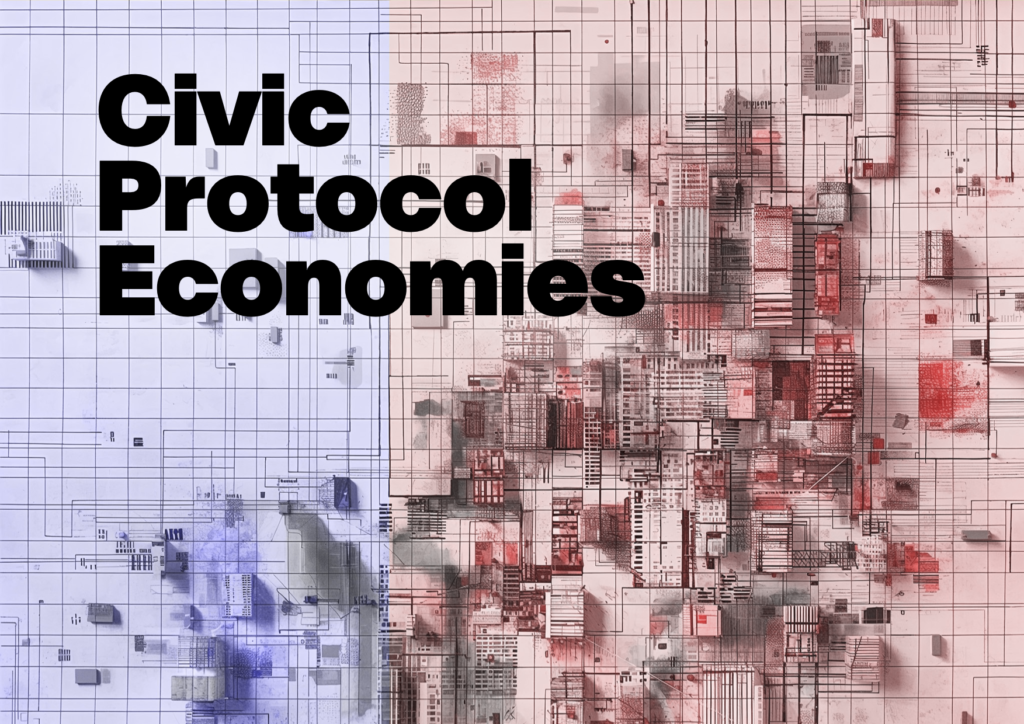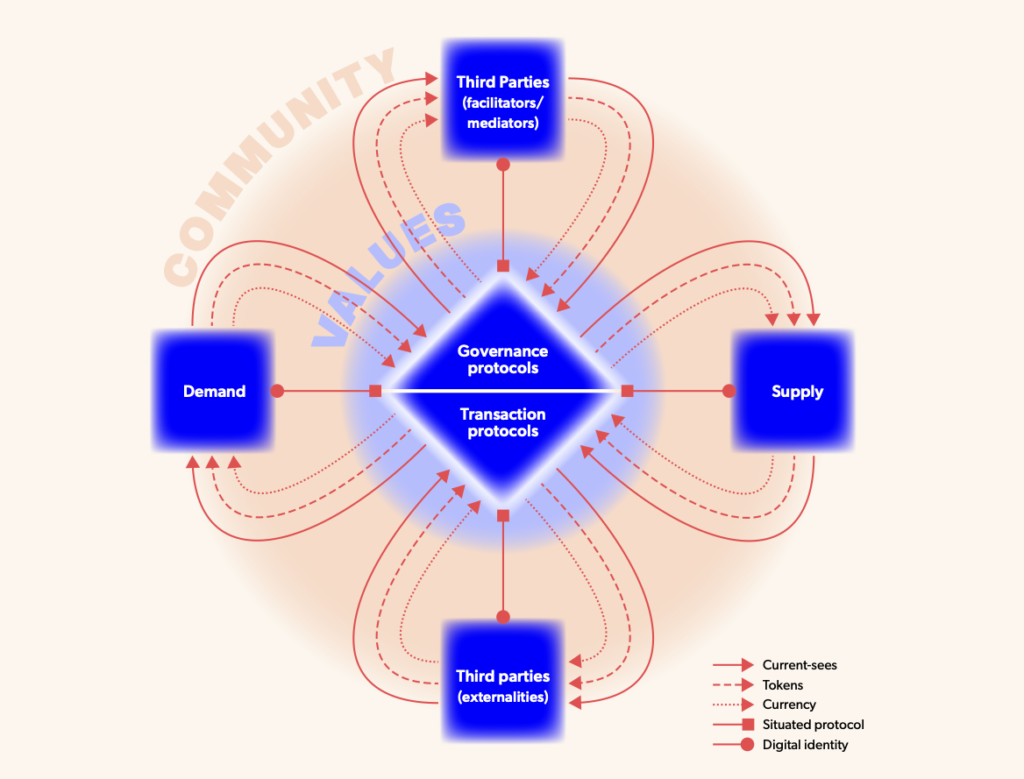In an era of rapid technological advancement and growing concerns about economic equity and sustainability, two promising approaches offer alternative visions for our economic future: the civic economy and the protocol economy. What happens when the civic economy meets the protocol economy?
In 2024, the Civic Interaction Design research group, in collaboration with the Centre of Expertise Economic Transformation (CET), organized a research residency titled “What happens when the Civic Economy meets the Protocol Economy?” This initiative, led by researcher, curator, and technology strategist Iskander Smit, aimed to explore how these two significant economic and technological developments might complement and strengthen each other.
The exploration delves into the potential synergies between civic and protocol economies, aiming to uncover new pathways for future research and design. The civic economy, focusing on community, collaboration, and social well-being, offers an alternative to more extractive and profit-driven winner-takes-all economic models. Meanwhile, the protocol economy, leveraging decentralized technologies, presents novel approaches to value exchange and governance of economic systems. By examining these two paradigms’ intersection, we envision a “civic protocol economy” that could potentially address complex societal challenges and foster more equitable, sustainable societies.
The research led to a report in which we present the findings of this exploratory research. It examines how communities pursuing non-profit, democratically governed economic models might responsibly leverage the potential of digital platforms and Web3 technologies. Our research contributes vital insights into this emerging intersection in a field where blueprints, guidelines, and exemplary prototypes remain scarce.
This research is particularly relevant as organizations worldwide search for economic models that prioritize community wellbeing while harnessing technological innovation. The findings highlight practical applications and potential challenges for communities and institutions looking to implement these hybrid economic approaches. We hope this report serves as a valuable resource for practitioners, researchers, and communities seeking to build more equitable, sustainable, and democratic economic futures.
Learn more
The complete “Civic Protocol Economies” report (PDF, 42 pages) is available here:
For additional information about this research or to discuss potential collaborations, please contact Iskander Smit or Martijn de Waal.
This research was conducted as part of the ongoing work of the Civic Interaction Design lectorate at the Amsterdam University of Applied Sciences.




